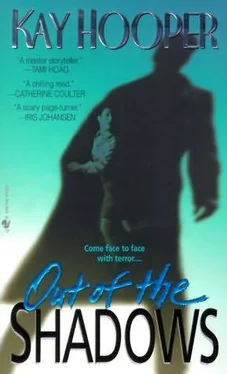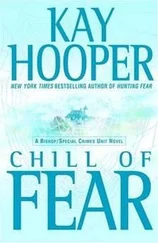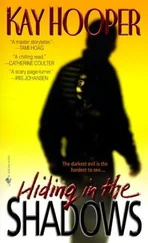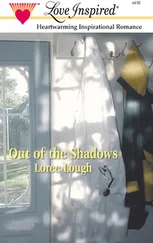"Wow," Miranda murmured at last, her eyes darkened, heavy lidded, and sensual.
Bishop's arms tightened for just a moment, then he eased her away from him. In a hoarse voice he said, "Much more of this and I won't have any wits left to focus on trying to catch our killer. Jesus, Miranda."
"They say self-denial is good for the soul."
"Yeah, and I'll bet the ones saying it didn't have anything they hated giving up."
Miranda smiled, but said, "Maybe we'd better concentrate on work for a while. Storm or no storm."
"Maybe we'd better," he agreed. "We can try one more time to put the pieces of the puzzle together."
Monday, January 17
Amy Fowler opened her eyes and gazed blearily at the ceiling. Same ceiling. Same stupid, dull ceiling, industrial gray squares pockmarked with tiny black specks. She was really, really tired of looking at that ceiling.
At least the wind had stopped howling like something trapped alive, and sleet no longer pelted the window panes in that unceasing, unsettling rattle. The storm was finally over.
The sedatives had blurred time somewhat for Amy, but she thought it was probably Monday morning; the light coming from the single window in the room was very bright, sunshine reflecting off lots and lots of snow.
Two days. They'd found Steve's body just two days ago.
Under the covers, her hands crept down to cover her lower abdomen, and tears welled up in her eyes. Steve was gone. Steve was gone, and a baby was coming, and Amy was so scared. She wanted to just go back to sleep, not to think about it anymore, but Dr. Daniels had told her gravely last night that there wouldn't be any more drugs, that she had to face things.
Face things. Face her mom and dad. Face the pity of her friends at school, while her belly got big and she went every Sunday to put flowers on Steve's grave.
Oh, God.
"Amy?" Bonnie came into the room, her expression wavering between worry and hope. "Dr. Daniels says you should eat something. One of the nurses is going to bring you a tray in a few minutes."
"I don't care," Amy murmured, honestly indifferent. She found the bed's controls and pressed the button to raise the head several inches.
Bonnie sat in the chair beside the bed. "A snowplow went past a little while ago, so the roads are being cleared. I think . . . your mom wants to come take you home now that the storm is over."
"I guess there's no school," Amy said.
"No. Probably not tomorrow either."
Amy pleated the sheet between her fingers. "But sooner or later. And everybody'll know."
Reasonably but not without sympathy, Bonnie said, "It isn't something you can hide for long. But you have choices, options. And you aren't alone, don't forget that."
"My dad's going to kill me."
"You know he won't."
Amy looked at her best friend and felt a little resentful. "I don't know that. All I know is that Steve is dead and he left me with a baby."
Bonnie didn't argue or point out that Amy had also helped create that baby. She merely said, "I'm sure if he'd been given a choice, he'd be here with you now."
"So I should be happy he would have chosen fatherhood over death? Great, that's just great."
"Amy, that isn't what I meant. I'm just saying that you can't blame Steve for not being here."
"You want to bet?" Amy laughed, vaguely aware that there was a shrill edge to the sound. "He couldn't leave well enough alone, that's what the problem was. That's what got him killed. He was always pushing, always going just that inch farther than he should have."
"What are you talking about?" Bonnie was frowning.
"I'm talking about Steve and his stupid, stupid plots and plans. You think he wanted to work in the paper mill all his life? Oh, no, not Steve Penman. He wanted something bigger, something better. The problem was, he didn't want to earn it or work for it — he just wanted it. And he always had some kind of plan, some scheme for taking the best shortcut to get just what he wanted."
"Amy, are you talking about something specific? Do you have some idea who might have killed Steve?"
"I know he had some idea who it was that killed Adam Ramsay — and why."
"What? How long have you known that?"
Amy shrugged. "Just after they found Adam's bones, I guess. Steve hinted that he knew why somebody would have killed Adam. He wasn't going to tell me anything more at first. It makes . . . made him feel more important to know things other people didn't know. Me, anyway."
"What did he tell you?"
"He said Adam had a real talent for rinding out things he shouldn't have, that he was always sticking his nose into the wrong places. He said he'd bet that's what happened, that Adam got too close to something dangerous. And he said he thought he knew how he could find out what it was that Adam had stumbled onto."
Slowly, Bonnie said, "Amy, why didn't you tell us any of this before?"
Amy went back to pleating the sheet between her fingers. "I don't know. I was so upset when he disappeared . . . and I don't really know anything else. I warned Steve not to go looking for whatever had gotten Adam killed, but he just laughed at me. He said he'd be careful." Her eyes filled with tears suddenly. "He said he'd be ... but I guess he wasn't, was he? He wasn't careful enough."
"No," Bonnie said. "He wasn't careful enough."
"When are the deputies due back with Marsh?" Tony asked.
Bishop checked his watch. "Maybe half an hour or so, depending on the roads." Sitting on the conference table as usual, he returned to brooding over the bulletin board.
"Something bothering you?"
"Just trying to figure the bastard out. I keep coming back to the way he killed Lynet."
"Because he drugged her?"
"Because he drugged her and then beat her that way. If you look at what he did to the others — say, Kerry Ingram, for instance — what he did was deliberately torture someone who was acutely aware of what he was doing. It wasn't just physical torture but emotional and psychological as well."
Miranda came into the room in time to hear, and said, "But with Lynet, the torture was physical — and she was entirely unaware of it."
Bishop nodded. "So why did he bother? I mean, kill her, sure — once he grabbed her, even if it was a mistake, he had to follow through. But why beat her to death?"
"Because he's a perverted son of a bitch?" Tony offered.
"Because he was angry," Bishop said. "Not angry at her, or he would have made sure she felt it."
"At himself?" Miranda guessed.
"Maybe. Or his situation. Maybe he realized that Lynet was the beginning of the end, literally. Maybe she was the one who proved to him that he wouldn't be able to go on much longer if he had to kill kids he knew."
Tony shook his head with a snort. "So he's pissed at his poor victim because she's somebody he knows, and because he's pissed he beats her to death — but he drugs her first because he doesn't want her to know he's hurting her? Jesus."
"You're missing the point, Tony."
"What point?"
Bishop looked at him. "That uncontrolled rage. It's a change in him, in his behavior. If you look at the Ramsay boy and Kerry Ingram, what he was doing to his victims could almost be termed . . . clinical. Emotionless. He strangled Kerry again and again to the point of unconsciousness, then waited for her to revive and did it again. As if he was . . . studying her responses somehow. And even though we only have the Ramsay boy's bones, it's obvious from them that his killer came up with more than one creative method of torture. If it was torture."
Tony said, "What are you driving at?"
Bishop returned his gaze to the bulletin board. "Maybe I've been looking at this the wrong way. Maybe his goal isn't to torture as much as it is ... to learn."
Читать дальше












